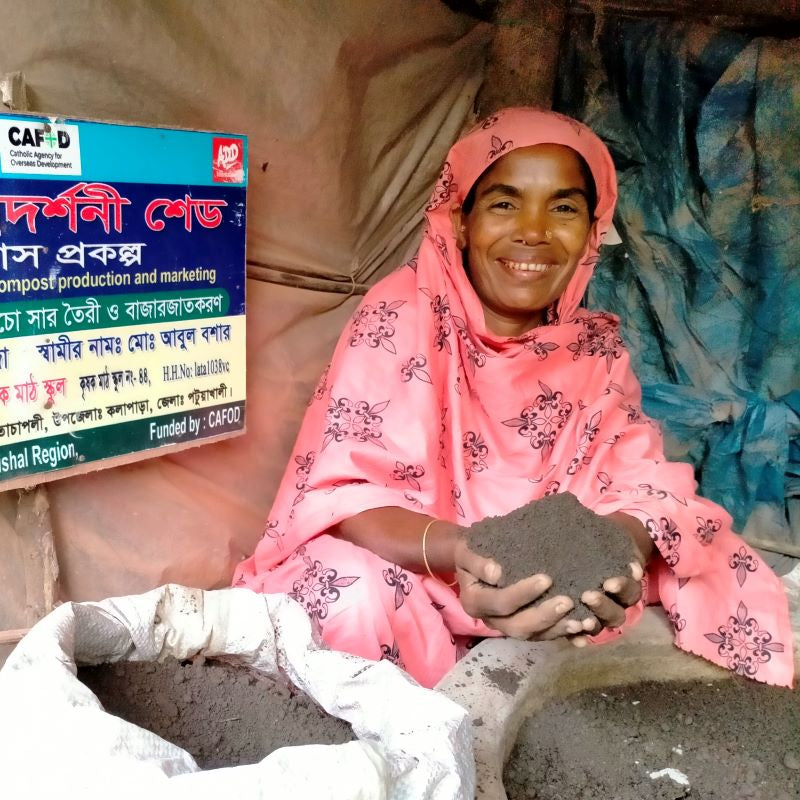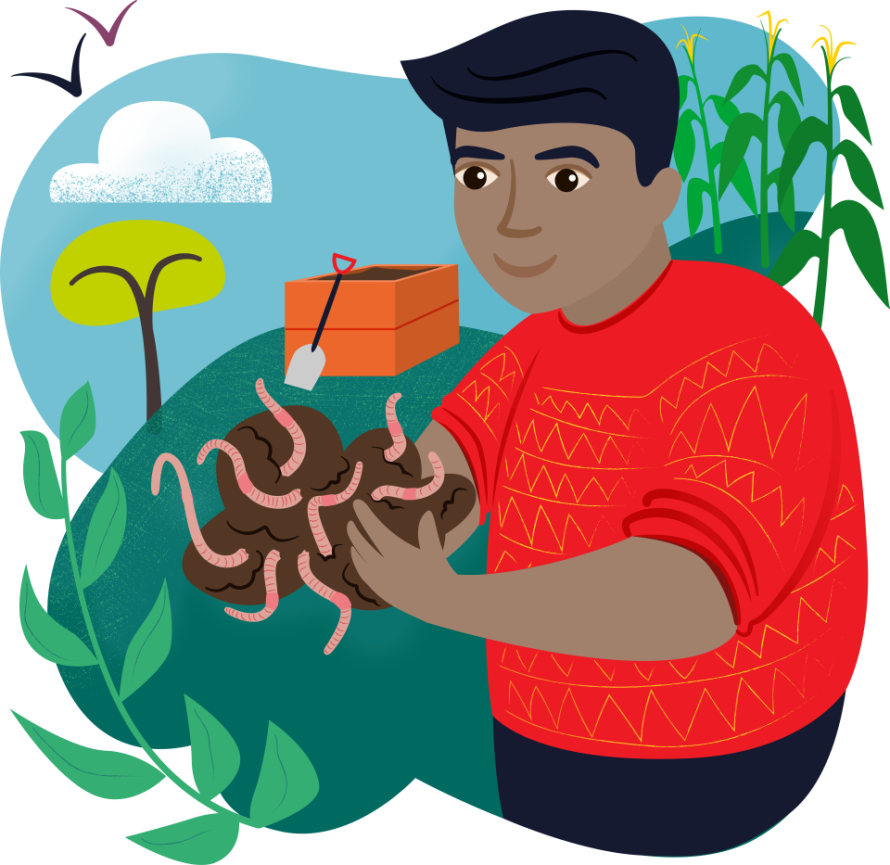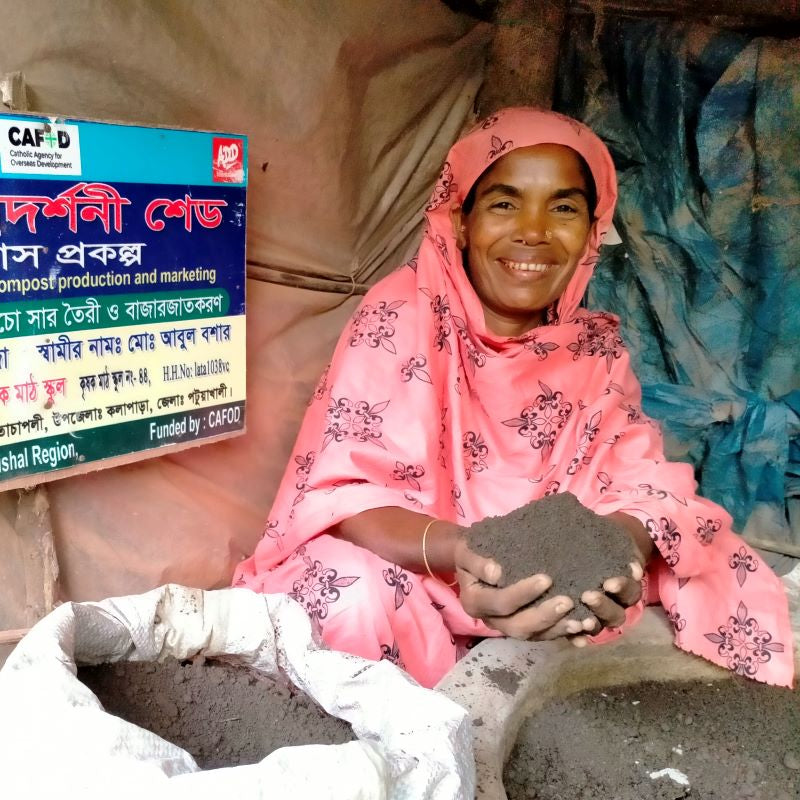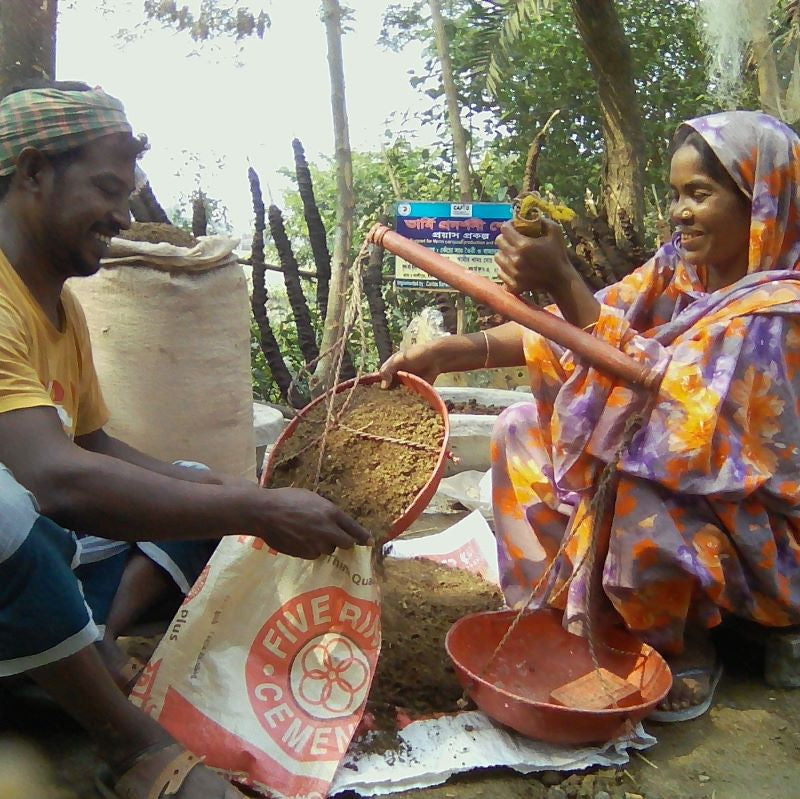Wonderful worms (for schools)
Read more
Why buy these Wonderful worms?
- These wonderful wiggly worms will make fantastic charity gifts for all your green-fingered loves ones!
- Worms naturally turn barren soil into compost, allowing farmers in remote landscapes to grow enough food to feed their families.
- Any unneeded compost can be sold to local farmers to make extra money, to save in case of emergencies.
Case study: Helping rural communities in Bangladesh
“I am grateful to those who have helped me to become self-sufficient” Firoza, Bangladesh
Firoza, 48, lives in rural Bangladesh with her children. Recently widowed, Firoza was finding it increasingly difficult to earn enough money to support her family by herself. She couldn’t always afford food and her children were forced to leave school and find work instead.
Thankfully, Firoza heard of a CAFOD-funded group where members of the community were being trained how to grow vegetables. With their help she began growing vegetables, and she was taught how to make vermi-compost. This technique uses worms to make chemical-free compost, which Firoza can then go onto sell.
Firoza has proven so successful that she has been able to afford chickens, ducks and even a goat. What’s more, her children can return to school and receive an education. Firoza is keen to continue expanding her business and secure her family's future!
This gift is part of our fund.
View all our gifts
Why buy these Wonderful worms?
- These wonderful wiggly worms will make fantastic charity gifts for all your green-fingered loves ones!
- Worms naturally turn barren soil into compost, allowing farmers in remote landscapes to grow enough food to feed their families.
- Any unneeded compost can be sold to local farmers to make extra money, to save in case of emergencies.
Case study: Helping rural communities in Bangladesh
“I am grateful to those who have helped me to become self-sufficient” Firoza, Bangladesh
Firoza, 48, lives in rural Bangladesh with her children. Recently widowed, Firoza was finding it increasingly difficult to earn enough money to support her family by herself. She couldn’t always afford food and her children were forced to leave school and find work instead.
Thankfully, Firoza heard of a CAFOD-funded group where members of the community were being trained how to grow vegetables. With their help she began growing vegetables, and she was taught how to make vermi-compost. This technique uses worms to make chemical-free compost, which Firoza can then go onto sell.
Firoza has proven so successful that she has been able to afford chickens, ducks and even a goat. What’s more, her children can return to school and receive an education. Firoza is keen to continue expanding her business and secure her family's future!
Choose a delivery option
Couldn't load pickup availability





